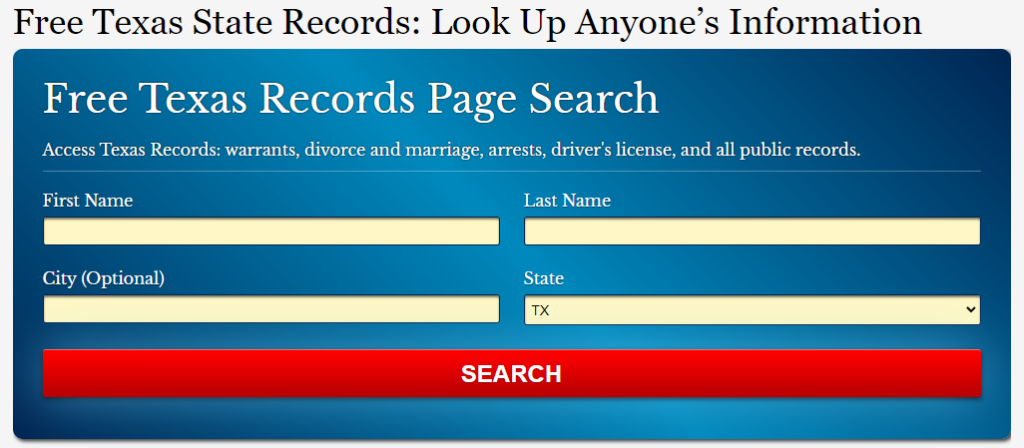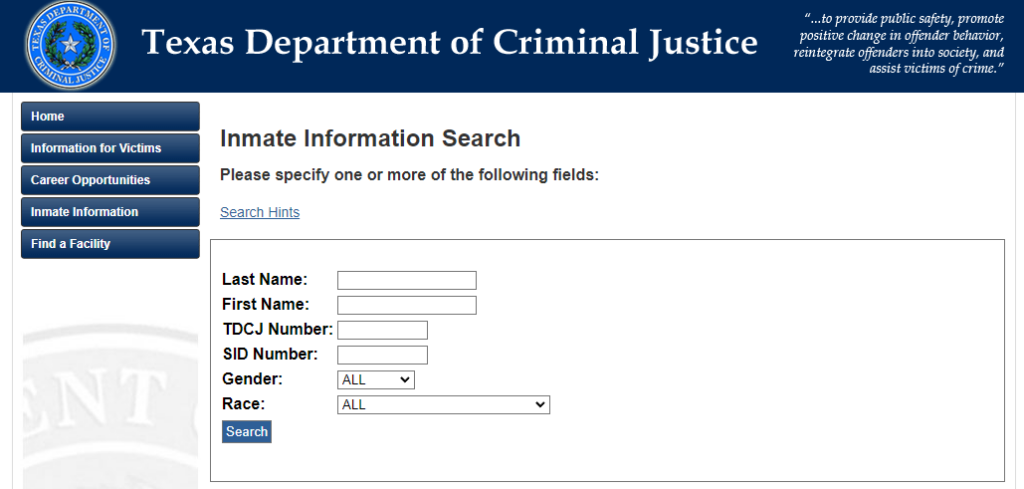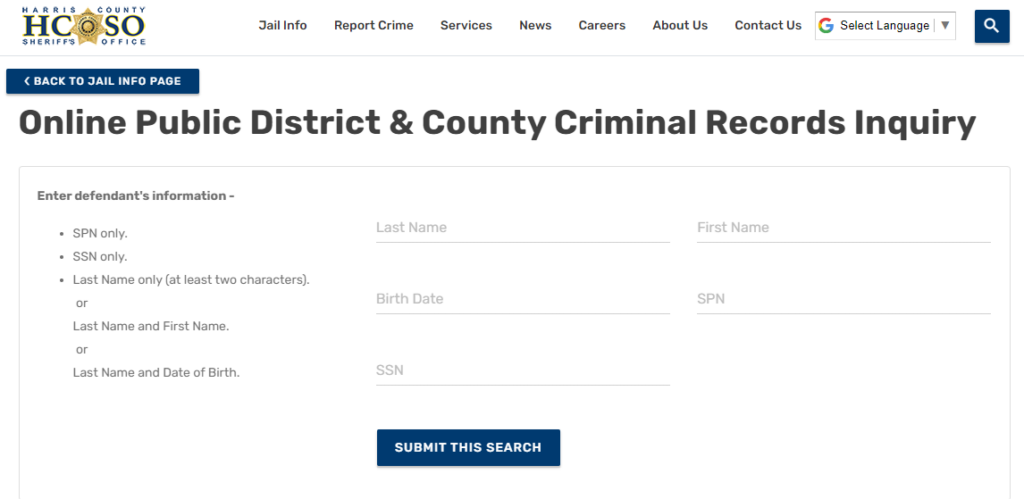When you think about the accessibility of Texas arrest records, you might wonder how easy it is to obtain this information and what it includes.
These records are generally available to the public through official channels like courthouses or online databases, reflecting Texas’s commitment to transparency and accountability.
However, if you’re planning to use this information for something like a background check, you’ll need to make sure you handle it responsibly and respect privacy laws. Let’s explore the nuances and essential steps involved.
Are Arrest Records Public in Texas?
In Texas, accessing arrest records is vital as they’re generally public, meaning you can obtain them through official channels like courthouses or online databases. This public access stems from the state’s commitment to transparency and accountability in the criminal justice system.
Arrest records can provide valuable information, including the details of the arrest, charges filed, and any subsequent legal actions. You should be aware that while most arrest records are public, there are exceptions.
Records involving juveniles, certain sensitive cases, or instances where disclosure may compromise an ongoing investigation might be restricted. Additionally, some records might be expunged or sealed, making them inaccessible to the general public.
Accessing these records can support various purposes such as background checks for employment, housing, or personal research. It’s important to handle this information responsibly, respecting privacy and legal boundaries.
Misuse of arrest records could lead to legal repercussions. Despite the ease of access, always verify the accuracy of the information obtained.
Official channels are the most reliable sources, ensuring the information is up-to-date and accurate. It’s essential to use arrest records ethically and responsibly, maintaining respect for individuals’ legal rights.
How to Find Texas Arrest Records?
To find Texas arrest records, you can begin by searching online databases that provide access to public records.
Another option is to use third-party search services that specialize in compiling and delivering criminal history information.
Additionally, you may visit local courthouses to request records directly from the clerk’s office.
Along with the free search options available, users can also conduct their own searches using Texas lookup options for free marriage, divorce, and warrant searches.
click to open Texas records search page.

Searching Online Databases
To find Texas arrest records, start by accessing the statewide repository, which consolidates records from across the state.
Additionally, many county sheriff’s office websites provide searchable databases where you can locate arrest information specific to that county.
Statewide Repository
When searching for Texas arrest records, you’ll find online databases to be a convenient and efficient resource. The Texas Department of Public Safety maintains a statewide repository of criminal history information.
This centralized database allows you to access thorough arrest records efficiently. Simply visit their official website, follow the search instructions, and obtain the necessary records, ensuring you have the required permissions for access.
County Sheriff’s Office Websites
County Sheriff’s Office websites offer a straightforward way to search for Texas arrest records online. You can access these sites directly, often finding a searchable database to input names, dates of birth, or other identifying details.
These databases provide detailed arrest records and other related information, making it a convenient resource for obtaining specific data without needing to visit the office physically.
Third-Party Search Services
Utilizing third-party search services can greatly streamline the process of finding Texas arrest records. These platforms often provide a more user-friendly experience compared to browsing government websites.
They aggregate data from multiple sources, allowing you to conduct thorough searches efficiently.
To effectively use third-party search services, follow these steps:
- Select a Reputable Service: Choose a service with good reviews and credibility. Reputable services often have extensive databases and user-friendly interfaces, enhancing your search experience.
- Input Accurate Information: Enter as much information as possible about the individual, including full name, date of birth, and any known aliases. Accurate details improve the likelihood of retrieving precise records.
- Review and Verify Results: Carefully examine the search results. Cross-reference the information with other sources to confirm its accuracy and reliability.
These services often come with a fee, but the convenience and breadth of information they provide can justify the cost. Always make sure the service complies with relevant privacy laws and regulations.
Using third-party search services can save you time and effort, making the process of finding Texas arrest records much more manageable.
Visiting Courthouses
To find Texas arrest records, start by visiting the courthouse where the arrest or legal proceedings occurred. Each courthouse maintains records pertinent to its jurisdiction, including arrest records, court proceedings, and final judgments.
When you arrive, head to the clerk’s office and request access to arrest records. Be prepared to provide as much information as possible, such as the individual’s full name, date of birth, and any known case numbers, to assist in locating the correct records.
It’s important to note that while many records are public, some information may be redacted for privacy or legal reasons. The clerk can guide you on how to access and interpret these documents.
If records aren’t immediately available, you might need to submit a formal records request, which could take some time to process. In some cases, courthouses offer public access terminals where you can search for records electronically.
This can be a quicker way to find the information you need. Always check the courthouse’s website for specific instructions, hours of operation, and any potential fees associated with obtaining copies of records.
Additional Resources and Considerations
When accessing Texas arrest records, you should also consider additional resources and legal aspects.
These include finding jail and inmate information, conducting warrant searches, and utilizing victim resources.
Understanding these elements guarantees you have thorough and accurate information while adhering to legal requirements.
Finding Jail and Inmate Information in Texas
Finding jail and inmate information in Texas involves accessing several official resources and following specific guidelines to guarantee accurate data. You’ll want to start with the Texas Department of Criminal Justice (TDCJ) website, which provides a thorough inmate search tool.
By entering the inmate’s name, TDCJ number, or state identification number, you can access details such as the inmate’s current location, projected release date, and offense history.
County-specific resources are also essential. For example, the Harris County Sheriff’s Office offers an inmate search feature on its website, allowing you to find information using the inmate’s name or system person number (SPN).
Additionally, the Texas Vine (Victim Information and Notification Everyday) service offers notifications about inmate custody status and changes, which can be particularly helpful for victims and concerned citizens.
When searching for jail and inmate information, it’s important to use only official government websites to ensure data accuracy and reliability.
Avoid third-party sites that may not update their databases regularly, leading to outdated or incorrect information. Always double-check the provided details and contact local authorities if you need further assistance or verification.
Texas Warrant Searches
Searching for warrants in Texas necessitates utilizing official resources to guarantee accuracy and up-to-date information. You’ll want to start with the Texas Department of Public Safety (DPS) website, which provides access to various public records, including warrants.
This site offers a thorough search tool designed to help you find the information you need efficiently. Another reliable resource is the county sheriff’s office website for the specific county in question.
These sites often have warrant search options or contact information for the warrants division. For example, the Harris County Sheriff’s Office provides detailed guidelines on how to request warrant information.
One way to check if someone has a warrant is to use the previously mentioned Criminal History Search on the DPS website.
Additionally, you can contact the county clerk’s office directly. They maintain public records and can assist in locating specific warrants.
It’s crucial to have as much information as possible, such as the full name and date of birth of the individual in question, to narrow down the search.
Victim Resources in Texas
Victims in Texas frequently have access to a wide range of resources designed to provide support and assistance during challenging times. The state offers various victim assistance programs aimed at addressing the physical, emotional, and financial needs of crime victims.
One significant resource is the Texas Crime Victims’ Compensation Program, which provides financial assistance for expenses such as medical costs, counseling, and lost wages.
Additionally, the Texas Department of Public Safety (DPS) offers a Victim Services Program that supplies important information and referrals to appropriate local services.
You can also access support through local organizations like the Texas Association Against Sexual Assault (TAASA), which provides advocacy and counseling for survivors of sexual violence.
For those impacted by domestic violence, the Texas Council on Family Violence (TCFV) offers resources and connects victims with local shelters and support services.
Furthermore, many counties in Texas have their own victim assistance coordinators who work directly with victims to navigate the legal system and make sure they receive necessary support.
These resources are designed to help you recover and rebuild after experiencing a crime, providing an extensive support network tailored to meet various needs.
Legal Considerations in Texas
When addressing legal considerations in Texas, it’s crucial to understand the resources available to help you make informed decisions. Knowing where to turn for accurate information can save you time and potential legal trouble.
Here are some key resources and considerations:
- Texas Courts Online: This resource provides access to court records and legal documents, offering insights into past cases and judgments. It’s a valuable tool for understanding legal precedents and current laws.
- Texas State Law Library: The library offers a wealth of legal resources, including statutes, case law, and legal forms. It’s an excellent starting point for anyone needing to understand Texas law thoroughly.
- Legal Aid Services: Various non-profit organizations in Texas provide legal assistance to those who can’t afford private attorneys. These services can offer guidance, representation, and legal advice in various matters.
Additionally, understanding the structure of Texas criminal courts can aid in navigating the legal system. Texas has a multi-tiered court system, from the highest appellate courts to local district courts.
Each level handles different types of cases, and knowing which court to approach can streamline your legal inquiries. Always make sure your actions align with state laws and regulations to avoid legal complications.
Sex Offender Registry and Public Safety Resources in Texas
Texas maintains a detailed Sex Offender Registry to enhance public safety and provide residents with essential information on individuals convicted of sex crimes.
This registry is an important tool for promoting awareness and vigilance within communities. You can access the Texas Department of Public Safety (DPS) website to search for offenders by name, address, or other identifying information.
The registry includes detailed records, such as photographs, physical descriptions, and current addresses of registered offenders.
To utilize the registry effectively, you should:
- Search Regularly: Regularly check the registry to stay informed about offenders living in your area.
- Report Suspicious Activity: If you notice any suspicious behavior or have concerns about an offender, promptly report it to local law enforcement.
- Educate Family Members: Discuss the importance of the registry with family members, ensuring they understand how to use it and recognize potential dangers.
Go on National Sex Offender Search tool to access a free, nationwide database of convicted offenders, searchable by name or address within a 3-mile radius.
In addition to the registry, Texas offers various public safety resources. Local law enforcement agencies provide community programs, educational materials, and support services to help residents maintain a safe environment.
By leveraging these resources, you can stay informed and proactive about public safety issues in your community.
Understanding Your Rights and Legal Considerations in Texas
Understanding your rights and legal considerations in Texas requires a solid grasp of state-specific laws and regulations that govern various aspects of daily life. Knowledge is power, especially when it comes to navigating the legal landscape. Here are some key points to keep in mind:
- Rights During Arrest:
If you’re arrested in Texas, you have the right to remain silent and the right to an attorney. It’s important to exercise these rights to avoid self-incrimination and secure legal representation.
- Access to Records:
Texas allows public access to most criminal records, but there are exceptions. Certain records may be sealed or expunged, meaning they aren’t available to the public. Understanding these nuances can help you protect your privacy.
- Legal Procedures:
Familiarize yourself with Texas’s criminal court procedures, which can impact your case outcome. This includes knowing the different types of pleas, the process for setting bail, and the steps involved in a criminal trial.
Conclusion
To sum up, accessing Texas arrest records is easily done through official channels, promoting transparency and accountability.
By learning how to locate these records and utilizing available resources like the sex offender registry, you can stay informed while respecting privacy and legal boundaries.
Always confirm the accuracy of the information you obtain and be mindful of your rights and legal considerations.
Proper handling of arrest records guarantees responsible use and upholds the integrity of public information.



